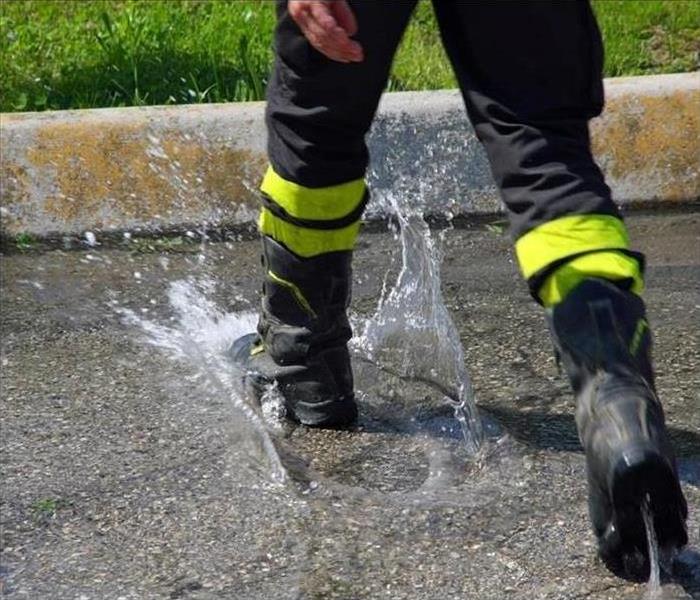3 Threats Associated With Standing Floodwaters | SERVPRO of Eaton County, Clinton and Gratiot Counties, Lansing & Holt
1/7/2021 (Permalink)
 If you experience any storm damage, contact SERVPRO of ECGLH. Our goal is to help make it "Like it never even happened."
If you experience any storm damage, contact SERVPRO of ECGLH. Our goal is to help make it "Like it never even happened."
3 Surprising Threats Associated With Standing Floodwaters
A flood can be one of the most devastating natural disasters you will experience during your lifetime. Floodwaters have the potential to completely devastate any area they pass through. At their worst, floods can lift homes off their foundations and crash through walls. Even a small flood can cause damage to your home by saturating your flooring and wall materials with water.
All homeowners need to be aware of the dangers that floodwaters pose so that they can take action to protect themselves in the aftermath of a flood. Standing floodwaters come with a variety of damages and threats. Learn about three surprising threats you should be mindful of as you assess the damage to your home following a flood.
- Electrocution
One of the deadliest risks associated with floodwaters is electrocution. Water is a powerful electrical conductor. When floodwaters come into contact with any electrical outlets or wires inside your home, the water has the potential to become electrically charged.
If you step into a pool of this standing floodwater or any exposed part of your body comes into contact with the water, the electrical charge stored in the water could pass through your body and cause serious harm.
Utility companies will typically shut down the electrical grid in any areas affected by a flood, but you should never assume that there is no electrical power to your home. Only a restoration professional with advanced training should enter your home to verify that the power is off at the breaker box and no electricity is circulating through your home.
- Explosions
If your home is equipped with any appliances that rely on natural gas as a power source, the risk of explosion is present after a flood. Floodwaters can dislodge the pipes that feed natural gas into your home. This creates gas leaks that can trap a buildup of gas inside your residence.
The smallest spark could cause the gas to explode, causing further damage to your home and putting the life of anyone inside the residence at risk. Experienced restoration professionals can detect gas leaks before they begin working to clean up the mess left behind by a flood.
You can take the necessary precautions to address the gas leak, allowing you to maximize your safety after floodwaters recede. Never enter your flooded home if the possibility of a gas leak is present.
- Disease
Another serious risk associated with floodwaters is disease. The transmission of many communicable diseases can be facilitated by standing floodwaters. Some of these diseases include cholera, typhoid fever, malaria, and West Nile virus.
The water that floods your home during a natural disaster can also become contaminated with raw sewage. Bacteria and other pathogens thrive in the standing water, which makes your flooded home a serious health hazard.
Because of these potential diseases, it's important that you don't come into contact with floodwaters without the proper safety gear. A company that specializes in restoring residential properties following a flood will have the experience and products needed to eliminate the threat of flood-related disease from your home.
A restoration specialist can use powerful chemicals that will disinfect and sanitize all of the surfaces within your home once the flood water has been removed. These same chemicals can also prevent mold growth in your home.
Floods are inherently dangerous, but the dangers don't stop once the active flooding subsides. Standing floodwater in your home can increase the risk of electrocution, explosions, and disease transmission following a flood.
Contact SERVPRO of Eaton County, Clinton and Gratiot counties, Lansing & Holt to handle your restoration needs after a flood so that you can avoid any associated dangers created by standing floodwaters.



 24/7 Emergency Service
24/7 Emergency Service